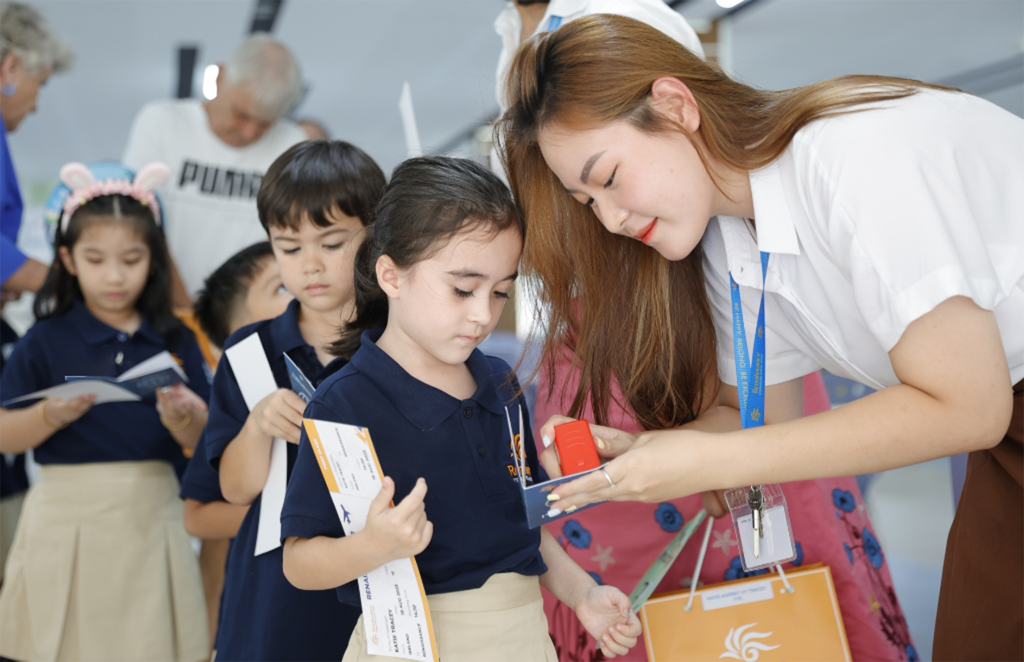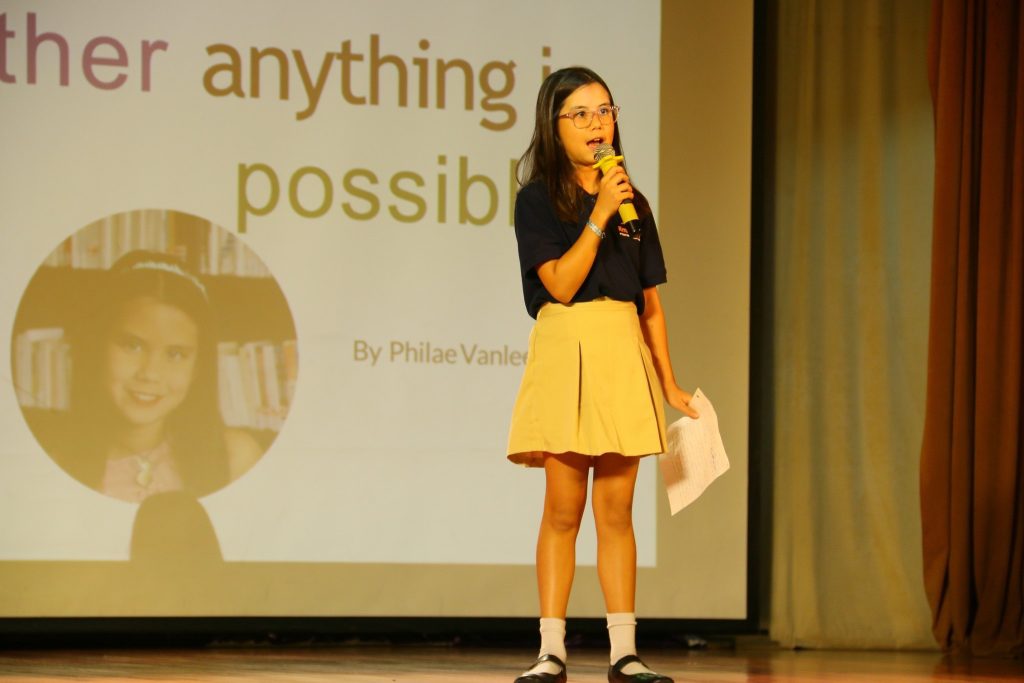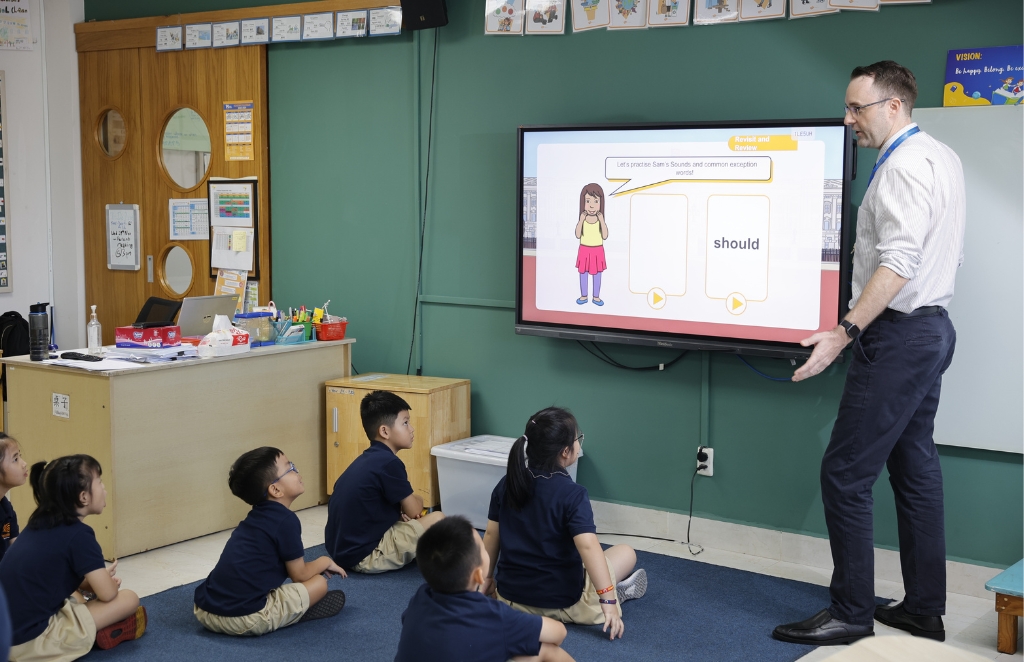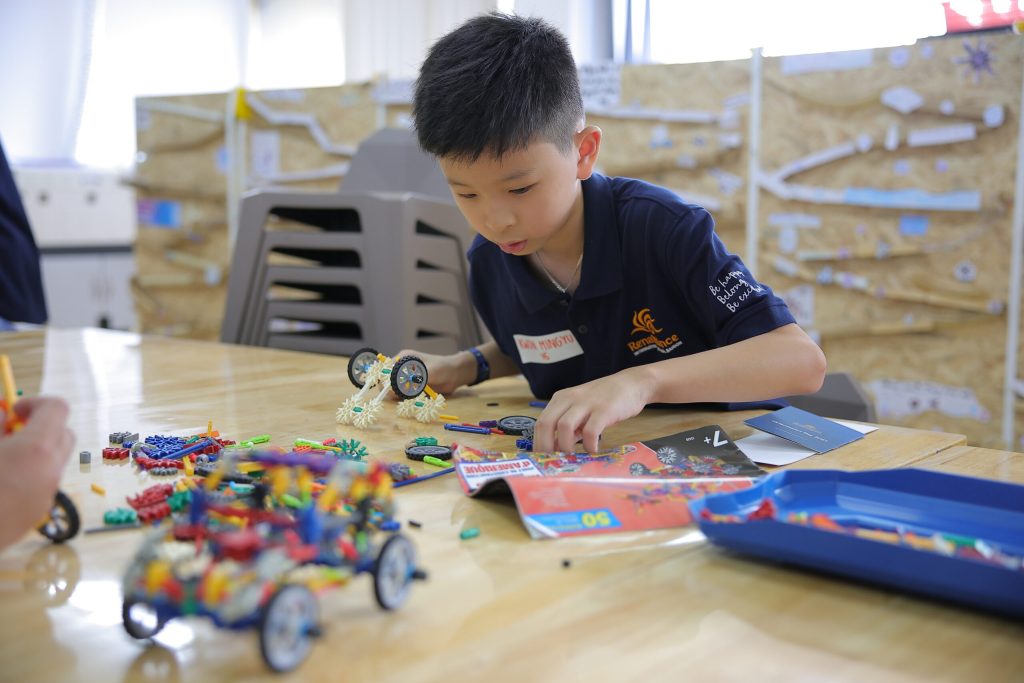The Power of Thinking Skills in the IB Curriculum
In today’s dynamic educational landscape, critical thinking and adaptability are crucial for global citizens. The International Baccalaureate (IB) curriculum excels in this through its cultivation of “Thinking Skills.” These skills are fundamental for unlocking student potential, driving academic rigour, promoting lifelong learning, and ensuring success. This article explores the impact of Thinking Skills in the IB framework, examining their types, teaching methodologies, and how parents can support this vital development.
Introduction to Thinking Skills in IB Education
Thinking Skills are a vital component of the IB’s “Approaches to Learning” (ATL) framework. They empower students to analyse deeply, evaluate critically, generate novel ideas, consider diverse perspectives, and apply knowledge effectively in new contexts, moving beyond mere memorisation.
These skills are integral to the entire IB continuum: the Primary Years Programme (PYP), Middle Years Programme (MYP), and Diploma Programme (DP). At all levels, Thinking Skills are explicitly taught, practised, and assessed. This focus on metacognitive awareness and strategic thinking fosters capable, confident, and independent learners, fully prepared for higher education and beyond.

Thinking Skills in IB Education
Why Thinking Skills Matter in IB Education
The IB curriculum strategically emphasises thinking skills to comprehensively prepare students for the 21st century. These skills offer multifaceted benefits beyond traditional academic achievements.
Academic Rigour and University Recognition
The IB’s challenging curriculum is globally recognised for its academic rigour, largely due to its focus on thinking skills. The program develops robust academic abilities, including sophisticated research, clear academic writing, and advanced critical thinking, preparing students for demanding university coursework.
IB Diploma holders are highly regarded by universities worldwide, often receiving advanced standing or credits, as the inquiry-based nature of the IB cultivates knowledgeable, independent thinkers, problem-solvers, and effective communicators.
Preparation for Lifelong Learning
Lifelong learning is essential in an era of rapid change. The IB Programme, integrating Thinking Skills, instils a genuine love of learning that extends beyond formal education. By encouraging curiosity, reflection, and proactive knowledge-seeking, the IB fosters a mindset valuing continuous learning and adaptability.
These skills empower students to identify knowledge gaps, formulate meaningful questions, and seek information independently, equipping them to adapt to new technologies and challenges throughout their lives. The emphasis on critical inquiry and creative problem-solving cultivates active, engaged learners.

Preparation for Lifelong Learning
Holistic Development and Global Awareness
A defining characteristic of IB education is its commitment to holistic development. Beyond academics, the program emphasises intellectual, personal, emotional, and social growth. Thinking Skills are fundamental, encouraging students to analyse academic, ethical, social, and personal challenges.
This fosters balanced individuals with heightened global awareness. Through interdisciplinary learning and diverse perspectives, IB students appreciate different cultures and reflect on their biases, cultivating a mindset committed to being internationally-minded citizens capable of understanding global issues and contributing constructively.
Success in Various Aspects of Life
The comprehensive development of thinking skills and other attributes cultivated through the IB curriculum prepares students for responsibilities beyond academic achievements. It equips them with a versatile toolkit for success in numerous aspects of life.
The ability to analyse problems, synthesise information, make reasoned judgements, and communicate effectively is invaluable whether navigating personal challenges, contributing to community initiatives, or excelling in professional careers. IB graduates are not just university-ready; they are prepared for leadership, entrepreneurship, and navigating adult life, making them highly sought after in diverse fields.
Types of Thinking Skills in IB ATL
The IB’s Approaches to Learning (ATL) framework categorises Thinking Skills into distinct, interconnected areas for comprehensive development.
Critical Thinking Skills
Critical thinking involves methodical analysis and objective evaluation of issues and ideas. This includes recognising problems, gathering or organising information for arguments, interpreting data, evaluating evidence, recognising biases, and drawing reasonable conclusions and generalisations.
Key Indicators (PYP & MYP):
- Analysing: Observing carefully, considering meaning, breaking knowledge into components. MYP extends this to complex concepts.
- Evaluating: organising relevant information, evaluating evidence and arguments, recognising unstated assumptions or biases, and considering multiple perspectives.
- Forming Decisions: Proposing/evaluating solutions, revising understandings, and drawing conclusions/generalisations.
- For MYP, additional indicators include formulating various question types (factual, topical, conceptual, and debatable) and developing opposing arguments.
Creative Thinking Skills
Creative thinking involves generating novel ideas and considering new, unconventional perspectives. This includes brainstorming, making unexpected connections, designing improvements or new solutions, and asking “what if” questions.
Key Indicators (PYP & MYP):
- Generating Novel Ideas: Using discussion and play, making unexpected connections, and practising “visible thinking” strategies.
- Considering New Perspectives: Seeking information, considering alternative solutions, asking “what if” questions, and generating testable hypotheses. This process encompasses the use of flexible thinking and the creation of metaphors and analogies.

Types of thinking skills
Transfer Skills
Transfer skills involve effectively applying learnt skills and knowledge across multiple contexts, including unfamiliar situations or those outside of school. This means moving knowledge from theory to practice or from one subject area to another.
Key Indicators (PYP & MYP):
- The process involves establishing significant links between inquiry units and various subjects, merging knowledge, conceptual understandings, and skills to generate products or solutions, and assisting others in enhancing their understanding.
- For MYP, this also includes comparing conceptual understanding across multiple subject groups and transferring knowledge to new technologies.
Reflection/Metacognitive Skills
Reflection and metacognitive skills involve consciously reconsidering one’s learning journey and using thinking skills to reflect on that process. This enables students to identify strengths and areas for improvement and to adjust learning strategies for greater effectiveness.
Key Indicators (PYP & MYP):
- Identifying strengths and areas for improvement: Asking self-assessment questions like “What did I learn today?” or “What don’t I yet understand?”
- Considering new skills, techniques, and strategies: Exploring and adopting new methods for effective learning and meticulously recording thinking and reflection processes.
- For MYP, this also includes considering ethical, cultural, and environmental implications and maintaining a consistent journal or portfolio for reflections.
Teaching and Learning Thinking Skills in IB Classrooms
The development of thinking skills in the IB classroom is a dynamic and intentional process, rooted in specific pedagogical principles and practices that encourage active learning and intellectual growth.
Cultivating a Culture of Inquiry
Developing thinking skills begins with fostering a strong culture of inquiry. This makes students aware of what it means to be a “thinker” and an “inquirer,” encouraging curiosity and intellectual exploration. The IB emphasises inquiry-based learning, prompting students to ask probing questions, challenge assumptions, and develop critical thinking through investigation. Complex challenges are advanced using engaging questions rather than didactic instruction.
Making Thinking Visible and Explicit
A key pedagogical principle is prompting students to make their thinking visible and public. Since thinking is often internal, teachers take deliberate actions to make mental processes transparent through verbalisation, graphic organisers, or articulating reasoning aloud. Making thinking explicit is vital, opening up the world of thinking for students to understand and practice strategic methodologies.
Strategies and Resources
Effective strategies and resources are paramount for systematically developing thinking skills. These approaches intentionally nurture thinking.
- Building an inquiry-based learning community creates a safe space for exploration.
- Introducing and reinforcing sub-skills (e.g., metacognition, questioning, analysing, evaluating, synthesising, dialectical thinking) across transdisciplinary enquiries, breaking them down skill by skill.
- Using “visible thinking” strategies (e.g., “Think-Pair-Share,” “See-Think-Wonder”) and visualisation helps externalise complex thought processes.
- Specific models and tools (e.g., Gibb’s Reflective Cycle for Reflection, Big 6 for Research, Thinking Pathways’ Ladder of Feedback for Communication, Belbin Team Roles for Social, and ‘States of Mind’ models for Self-Management) teach different thinking skills.
- Playbooks, strategy cards, and ATL Resource Toolkits offer activity ideas and strategies for various age groups.
- Anchor charts and breaking down sub-skills are particularly helpful for younger students, making complex cognitive processes visually clear and manageable.

Teaching and learning thinking skills
Collaborative Thinking
Thinking is not solely a solo activity; cooperative learning and group work provide rich opportunities for enhancing thinking skills. When students engage in collaborative projects, they naturally scaffold one another’s thinking, making individual thought processes more visible through shared dialogue.
This interaction exposes students to diverse perspectives, challenges assumptions, and requires them to articulate reasoning clearly, strengthening analytical and communication skills. Collaborative thinking fosters a dynamic environment where ideas are debated, refined, and synthesised collectively, leading to deeper insights and robust solutions.
Cultivating Thinking Dispositions
Beyond teaching discrete skills, cultivating thinking dispositions and habits of mind is crucial. These dispositions (e.g., persistence, open-mindedness, curiosity) drive effective thinking. Fostering them means creating a space where students think critically, creatively, and ethically. It’s about building character traits that support lifelong inquiry and thoughtful engagement.
Decision-Making and Reasoned Judgement
A critical application of thinking skills is the development of strong decision-making and reasoned judgement. Students are challenged to analyse situations, evaluate options, anticipate consequences, and make choices based on logical reasoning and evidence.
This skill is cultivated across the curriculum, from scientific experimentation to humanities discussions. The IB encourages students to move beyond surface-level opinions, providing frameworks to systematically arrive at logical, ethical, and culturally sensitive conclusions, preparing them for complex decision-making in academic, professional, and personal contexts.
How to Develop Thinking Skills in the IB Classroom
Effectively developing thinking skills in the IB classroom requires a multifaceted and integrated approach that extends beyond simple instruction. It encompasses the creation of an environment where thinking is valued, explicitly taught, and continuously practised.
- Building a Culture of Inquiry: Teachers establish classrooms where questioning is encouraged, curiosity is celebrated, and students feel safe to explore ideas without fear of judgment. This involves modelling enquiries, providing open-ended problems, and guiding students through investigative processes.
- Making Thinking Visible: This approach involves using strategies that externalise students’ thought processes. Techniques like “thinking routines,” graphic organisers, and structured discussions help students articulate their reasoning, make connections, and reflect on their learning journeys. When thinking is visible, both students and teachers can better understand how learning is progressing and identify areas for development.
- Practical Strategies and Resources: Educators leverage a range of pedagogical strategies and resources. This includes introducing specific sub-skills like metacognition, systematic questioning, analysis, evaluation, synthesis, and dialectical thinking. Tools such as reflection journals, research frameworks (e.g., Big 6), and communication models (e.g., Ladder of Feedback) provide concrete scaffolding. IB-specific resources and ATL toolkits offer a wealth of activities and guidance tailored to different age groups and subject areas.

How to develop thinking skills in the classroom
- Encouraging Collaborative Thinking: Group work and cooperative learning are vital. By engaging in discussions and shared problem-solving, students learn from diverse perspectives, challenge each other’s assumptions constructively, and collectively build deeper understandings. This social aspect of thinking allows for the co-construction of knowledge and the refinement of individual reasoning through peer interaction.
- Fostering Thinking Dispositions and Habits of Mind: Beyond teaching the “how-to,” the IB classroom focuses on nurturing the “will-do.” This means cultivating intellectual dispositions such as persistence, open-mindedness, intellectual curiosity, and a willingness to revise one’s understanding. Teachers create opportunities for students to regularly engage in activities that demand these habits, reinforcing their importance and celebrating their display.
How Parents Can Support Thinking Skills at Home
Parents are vital partners in developing thinking skills, complementing the work done in schools. Here are practical ways to support this at home:
- Encourage curiosity and questioning: Respond to “Why?” and “How?” with interest; prompt children to think, “What do you think?”
- Promote active listening and empathy: Encourage listening to others’ viewpoints. Discuss perspectives on issues in books, news, or daily life.
- Engage in problem-solving together: Present age-appropriate problems. Involve them in brainstorming solutions and evaluating pros and cons.
- Foster a love of reading and diverse materials: Provide various resources. Discuss what they’ve read, asking open-ended questions about motivations or implications.
- Encourage reflective thinking: After an activity, ask, “What did you learn?”, “What worked well?”, and “What would you do differently?”
- Limit passive consumption of media: Encourage active engagement with content. Discuss what they see in documentaries, news, or games, prompting critical thinking.
- Support independent research: Guide them through projects. Help them identify reliable sources, organise their findings, and articulate their conclusions.
- Model critical thinking: Parents can model critical thinking by openly discussing decisions, evaluating information, and showing flexibility in their thinking.

This section discusses how parents can assist students in developing their thinking skills

